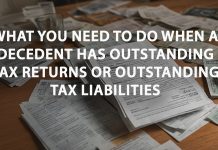The bill as proposed by Senators Schumer and Manchin includes funding the IRS an extra $45.6 billion to audit the middle class.
In total under the Inflation Reduction Act the IRS would be receiving $80 billion in new funding. Democrats claim this “investment” will yield more than $200 billion in revenue. That estimate is highly speculative, but for certain it adds a lot of resources for IRS auditors to soon come after tens of millions of Americans with audits. The $80 billion price tag is more than six times the current annual IRS budget of $12.6 billion. The money will be distributed to IRS over nine years and comes with few strings attached.
Democrats are looking to the IRS to come down hard on taxpayers with Senators Schumer and Manchin stating that it is time for the agency to go into “beast mode”. The bill earmarks $45.6 billion for “enforcement,” including “litigation,” “criminal investigations,” “investigative technology,” “digital asset monitoring” and a new fleet of tax-collector cars. The intended result will be far more audits, civil suits and criminal referrals.
The main targets will by necessity be the middle- and upper-middle class because that’s where the government believes the money is. The Joint Committee on Taxation, Congress’s official tax scorekeeper, says that “78% to 90% of the money raised from under-reported income would likely come from those making less than $200,000 a year. Only 4% to 9% would come from those making more than $500,000.”
It is reported that a particular audit target will be “pass throughs” including Subchapter S and LLC businesses that file under the individual tax code. With the proliferation of States legalizing cannabis, it would not be surprising for the IRS to increase audits for this industry too. Democrats keeping their promise not to raise individual tax rates, have resorted to increasing audits as a way of increasing tax revenues.
Importance To Preserve Records
Keep in mind that the IRS has up to three years to select a tax return for audit. For California taxpayers, the Franchise Tax Board has up to four years to select a California State Income Tax Return for audit. In some cases these 3 and 4 year periods are extended to six years. When a taxpayer is selected for audit, the taxpayer has the burden of proof to show that expenses claimed are properly deductible. Having the evidence handy and organized makes meeting this burden of proof much easier.
Essential Records to Have for a Tax Audit
If you are getting ready for a tax audit, one of the most important things to do is gather and organize your tax records and receipts. There’s a good chance that you have a large amount of documents and receipts in your possession. No matter how organized you are, it can be a daunting task to collect the right pieces and make sure that you have them organized and handy for the audit conference.
We have seen many tax audits that hinge on whether or not the taxpayer can provide proper documentation for their previous tax filings. A tax lawyer in Orange County or elsewhere can make sure that the documentation is complete and proper. By submitting this to your tax attorney in advance of the audit, your tax attorney can review your documentation and determine if there are any gaps that need to be addressed before starting the dialogue with the IRS agent.
So what are the most essential tax records to have ahead of your audit? Here are a few must-have items:
- Any W-2 forms from the previous year. This can include documents from full-time and part-time work, large casino and lottery winnings and more.
- Form 1098 records from your bank or lender on mortgage interest paid from the previous year.
- Records of any miscellaneous money you earned and reported to the IRS including work done as an independent contractor or freelancer, interest from savings accounts and stock dividends.
- Written letters from charities confirming your monetary donations from the previous year.
- Receipts for business expenses you claimed.
- Mileage Logs for business use of vehicle.
- Entertainment and Travel Logs for business
Appealing Results Of An IRS Tax Audit
Now if your IRS tax audit is not resolved, the results may be challenged. After the Revenue Agent has concluded the tax examination, the agent will issue a copy of the examination report explaining the agent’s proposed changes along with notice of your appeals rights. Pay attention to the type of letter that is included as it will dictate the appeals process available to you.
The “30-day letter”
The “30-day letter” gives you the right to challenge the proposed adjustment in the IRS Office Of Appeals. To do this, you need to file a Tax Protest within 30 days of the date of the notice. The Appeals Office is the only level of appeal within the IRS and is separate from and independent of the IRS office taking the action you disagree with. Conferences with Appeals Office personnel are held in an informal manner by correspondence, by telephone, or at a personal conference.
The “Notice Of Deficiency”
If the IRS does not adopt your position, it will send a notice proposing a tax adjustment (known as a statutory notice of deficiency). The statutory notice of deficiency gives you the right to challenge the proposed adjustment in the United States Tax Court before paying it. To do this, you need to file a petition within 90 days of the date of the notice (150 days if the notice is addressed to you outside the United States). If you filed your petition on time, the court will eventually schedule your case for trial at the designation place of trial you set forth in your petition. Prior to trial you should have the opportunity to seek a settlement with IRS Area Counsel and in certain cases, such settlement negotiations could be delegated to the IRS Office Of Appeals. If there is still disagreement and the case does go to trial, you will have the opportunity to present your case before a Tax Court judge. The judge after hearing your case and reviewing the record and any post-trial briefs will render a decision in the form of an Opinion. It could take as much as two years after trial before an Opinion issued. If the Opinion is not appealed to a Circuit Court Of Appeals, then the proposed deficiency under the Opinion is final and your account will be sent to IRS Collections.
IRS Area Counsel are experienced trial attorneys working for the IRS whose job is to litigate cases in the U.S. Tax Court and look out for the best interests of the Federal government. So to level the playing field, it would be prudent for a taxpayer to hire qualified tax counsel as soon as possible to seek a mutually acceptable resolution without the need for trial, and if that does not happen, to already have the legal expertise in place to vigorously defend you at trial.
What Should You Do?
You know that at the Law Offices Of Jeffrey B. Kahn, P.C. we are always thinking of ways that our clients can save on taxes. If you are selected for an audit, stand up to the IRS by getting representation. Tax problems are usually a serious matter and must be handled appropriately so it’s important to that you’ve hired the best lawyer for your particular situation. The tax attorneys at the Law Offices Of Jeffrey B. Kahn, P.C. located in Orange County (Irvine), the San Francisco Bay Area (including San Jose and Walnut Creek) and elsewhere in California are highly skilled in handling tax matters and can effectively represent at all levels with the IRS and State Tax Agencies including criminal tax investigations and attempted prosecutions, undisclosed foreign bank accounts and other foreign assets, and unreported foreign income. Also if you are involved in cannabis, check out what a cannabis tax attorney can do for you and if you are involved in crypto-currency, check out what a Bitcoin tax attorney can do for you.








